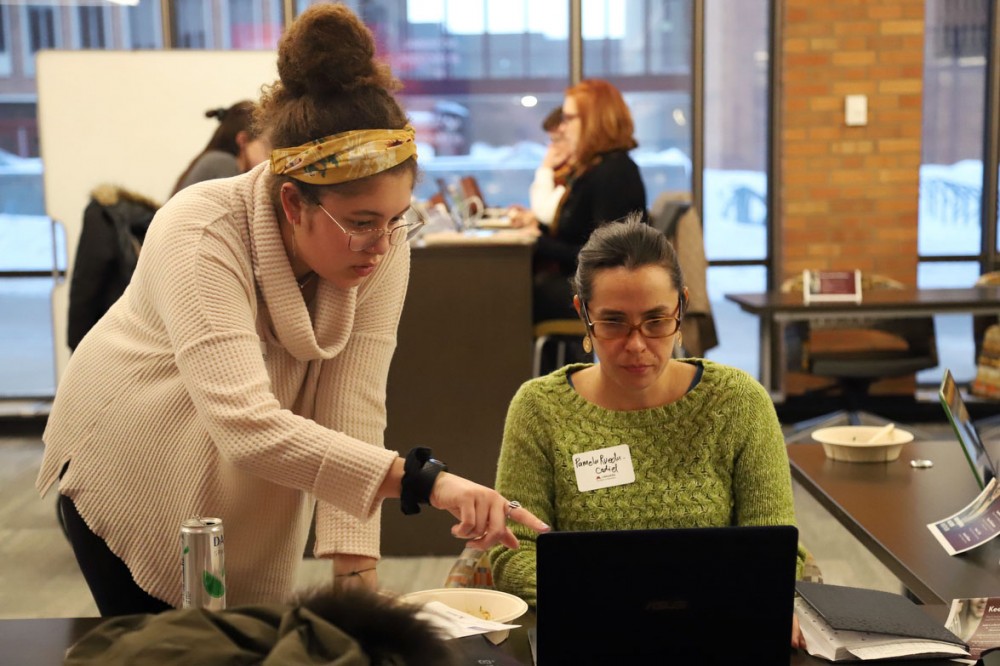Over 80 percent of Wikipedia biographies are about men, and some University of Minnesota colleges hope to change that.
A multi-college “Wikithon” hopes to improve the visibility of women in STEM by updating the Wikipedia biographies of University women scientists. The College of Science and Engineering, College of Biological Sciences and College of Food, Agricultural and Natural Resource Sciences each submitted names from their respective colleges.
With around 40 participants, organizers said Thursday’s pilot event trained individuals to improve current biographies.
“It’s clear that there are so many fantastic women scientists here at the U of M, and I think getting their science out there on the web is really important for us,” said Valery Forbes, dean of CBS. “We’re often told that we’re not good enough at telling our story, and this is one way we can tell our story.”
Cheryl Quinn, a CBS alumna, said women are especially underrepresented in biological sciences, despite that women and men receive a similar number of Ph.D.s. Quinn updated Forbes’ Wikipedia page.
“She does not have a Wiki page, which is amazing given the number of publications she has,” Quinn said.
CBS emphasized a biography for Josephine Tilden, the first female researcher employed at the University. Tilden investigated various species of algae on the west coast of the United States in the early 1900s.
Fungi researcher Georgiana May is currently researching Tilden’s legacy of helping to create the first University research station on Vancouver Island. She will be focusing on how climate change impacted the species of algae studied by Tilden.
“She did contribute by being such an early recorder of these [algae] communities and their diversity,” May said. “We, now 100 years later, have a very important comparison that can be made.”
Quinn said women scientists may have been unnoticed in the past because they were married. When she was researching Beatrice Magee, a University biochemist who worked in her husband’s lab, she struggled to describe Magee’s individual contribution.

Physics professor Marvin Marshak noticed a similar issue with a previous nepotism policy, which didn’t allow University astrophysicist Phyllis S. Freier to become a professor because her husband was already employed. Marshak said colleagues thought she was a more distinguished physicist than her husband.
Freier made a major breakthrough on the research of cosmic ray physics, proving the similarity between our solar system and the rest of the galaxy. But Marshak said she was limited by the University’s former policy.
She worked at the University for 20 years before being distinguished as a professor when the rule was scrapped in the 70s.
Marshak said that, today, representation of women can help remove barriers.
“It helps … to know that this has been done and it’s not impossible,” Marshak said. “To know that the path in front of you has been successful for some other people that are similar to you, it’s just very encouraging. Life is a lot about taking risks.”








